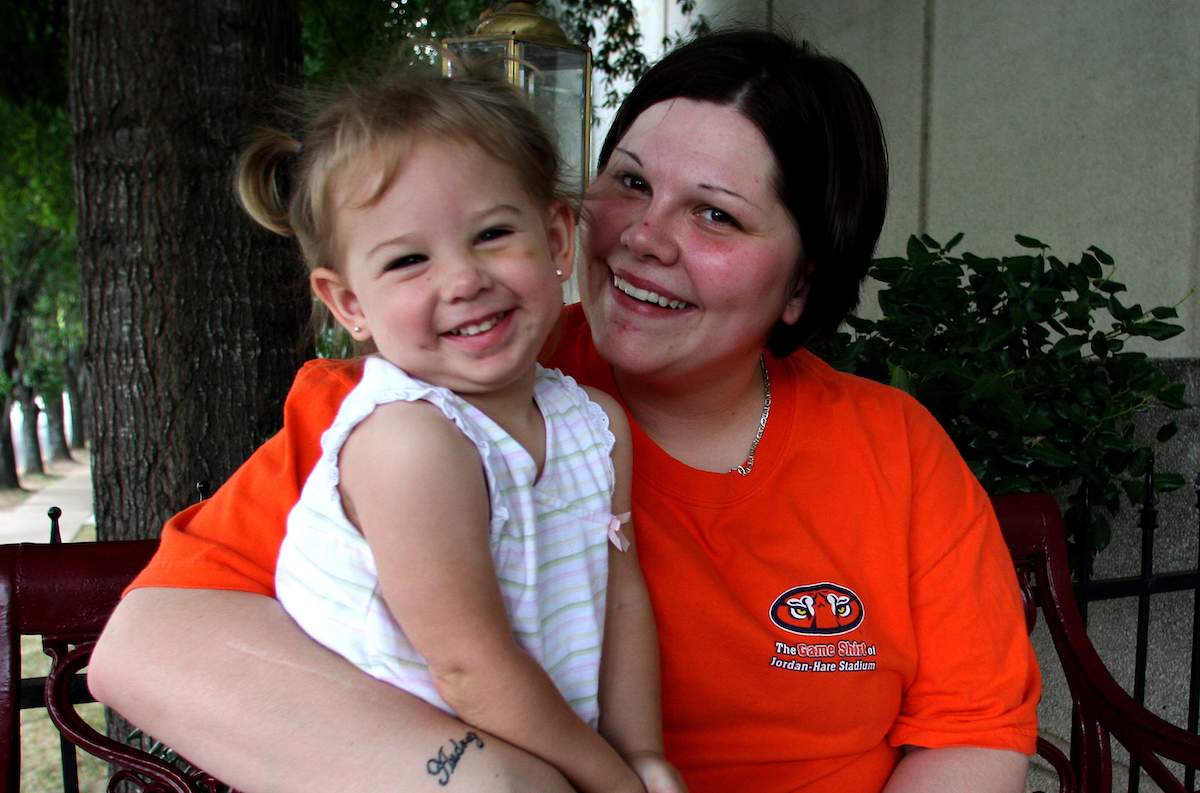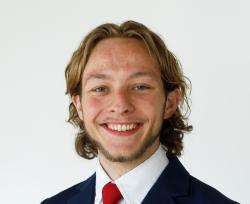Each year, over 80,000 women are released from state prisons. Within five years, around half of these women are predicted to return. Most of them experienced childhoods sabotaged by violence, sexual abuse, trauma, and broken families. Many are battling addiction and mental health disorders. For complex problems like women’s incarceration and recidivism, there are no silver bullets. Multivariate problems require multivariate solutions. Faith-based programs, such as the Lovelady Center in Birmingham, Alabama, have shown they can rise to the challenge.
At the national level, women are the fastest growing demographic in the criminal justice system. From 1978 to 2019, the number of women in state corrections systems increased over 750%, to around 95,000 in 2019. The total state corrections population grew at a comparably sluggish 350% over the same period.
This upward trend is especially troubling because 60% of women in prison are mothers, 4 in 10 of whom are single parents. As the Prison Policy Initiative notes, more than 80% of the over 2 million women who pass through jails every year are mothers. “Whether through prison or jail, separating mothers from their children tends to disturb a child’s formative years; the shorter sentences associated with jail time only magnify these disruptions.”
Such disruptions can tragically predispose children to addiction, mental health disorders, disease, and criminal deviance later in life. According to the National Institute of Justice, children of incarcerated parents are, on average, six times more likely to become incarcerated themselves. One study found that children of incarcerated mothers are more likely to be arrested, use drugs, and begin using at an earlier age than children of incarcerated fathers. It is no wonder, since over three-quarters of women in state prisons report providing most of the daily care for their children prior to incarceration. Like children of incarcerated fathers, children of incarcerated mothers are more likely to develop anti-social behavior and substance abuse, and are more likely to attempt suicide.
What really matters, then, is breaking the cycle of incarceration and reincarceration, which requires considering the nature of women’s crimes and the struggles they face after release. The majority of women are serving time for nonviolent offenses, often associated with abusive relationships, addiction, and motherhood-related stress combined with lack of familial support. In state prisons, 69% of women are battling addiction, and three-quarters report they have mental health disorders. Incarcerated women are more likely to report histories of physical and sexual abuse prior to incarceration and more like to be sexually abused while incarcerated. Women are also more likely than men to experience homelessness before and after incarceration.
The state of Alabama—which has one of the highest women’s incarceration rates and one of the fastest growing femaleprison populations in the country—provides a critical context for examining this problem. The three-year female recidivism rate of 37% provides reason to believe that state solutions are not working. In 2023, the Alabama Appleseed Center for Law and Justice interviewed 400 Alabamans who had been victims of violent crime and still lived in violent neighborhoods. Of the 40% who had been incarcerated, less than half said they received rehabilitative services while in prison. Fifty-three percent of those whose sentences involved some sort of supervision, such as parole or probation, said that supervision was no help at all. In contrast, the Lovelady Center shines as a beacon of hope for keeping women from returning to prison.
The Lovelady Center
In 2004, Brenda Lovelady Spahn felt a calling to minister to inmates from Tutwiler Prison. She founded the Lovelady Center as a faith-based transitional program to help women, with or without criminal records, get their lives back on the right track. Since its humble beginnings, Spahn’s “Wholeway House” has touched the lives of 14,000 women and 4,000 children, making it one of the largest centers of its kind in the country. Today the center houses over 400 women and over 100 children at any given time.
Recognizing that successful transitions require holistic care, the Lovelady Center provides women access to safe housing, clothing, meals, onsite medical and dental care, and counseling, most of which is court-ordered. About 80% of the women at Lovelady are mothers, so childcare comprises a large part of the center’s services. The children living onsite either spend their day in the center’s childcare center or attend classes at Miracle Academy, a K–5 private school partnering with the Lovelady Center. Last year alone, over 30 babies were born in the center. Knowing their basic needs are being met, women at Lovelady can focus more intently on their recovery.
All women at the center enroll in a rigorous nine-to-12-month program during which they develop skills needed to provide for themselves and their families. To graduate, women must take courses on subjects like financial literacy, relapse prevention, and parenting. At the same time they must work toward earning their GED or high school diploma. Through partnerships with local colleges, women at Lovelady can sit for the GED exam for free and enroll in college courses and professional programs. In 2021 alone, 17 women earned their GEDs and two earned their high school diplomas. The program also requires attending at least nine counseling sessions to address struggles with mental health and addiction.
Outside of classes, women work either at the center or at one of Lovelady’ two thrift stores, which generate over half the organization’s $12.5 million operating budget. Working allows the women at Lovelady to invest in their own recovery while gaining valuable job skills. Program graduate Andi Brown acquired the necessary proficiencies while working in the center’s dental clinic to land what she called a “for-real job” at a local dental clinic. Lovelady partners with job-readiness groups like WorkFaith Birmingham and local employers to connect graduates to stable employment opportunities in the Birmingham area. The Lovelady Center, as graduate Jessica Mayers said in an interview, “will build women up in a manner in which they know how to take care of themselves when they leave.”
While meeting material needs in a comprehensive and simultaneous manner is necessary, it is not sufficient. Lovelady attends to the needs of the whole person—material and spiritual—while government programs tend to focus on the material aspects alone. Lovelady provides a context for healing, restoration, and redemption by showing the love of Christ to women whose lives have been broken by adversity. Every week the center holds worship services, devotions, and Bible studies; every year, over 200 women are baptized. As graduate Joni Rogers reflected, the program revolves around “the Lord Jesus Christ and how he was the Way, the Truth, the Life through our addiction, through our pain.” Those who have graduated from Lovelady describe the love and compassion expressed by the center’s staff, over 80% of whom are program graduates themselves. Like soldiers beside each other in battle, there is a greater sense of mutuality, empathy, and solidarity as these women uplift each other on the path to recovery. Rogers underscores the importance of this sense of community to her transition: “You had someone to talk to. We all had a story. We all had an addiction. … We each could feed from each other and find out, ‘How did you get through it?’”
Because of the sheer weight of addiction, trauma, and related adversities, only 35% of women graduate from the program, and 40% of women who enroll in the program have been through Lovelady before but never graduated. The women who have graduated have formed a tight-knit community in and around the Lovelady Center. In addition to the 150 graduates on full-time staff, over 60 women live together in a graduate living center nearby. The importance of the sense of accountability and support the community provides cannot be overstated. According to Frank Long, the center’s external affairs director, women who stay the full 12 months of the program are much less likely to go back to prison, and the women who stay involved in the lives of other graduates generally maintain full employment, stable housing, sobriety, and custody of their children. He recalls that, in over a decade and a half, only one graduate involved in the Lovelady community was rearrested. While the center is still working on developing hard, longitudinal outcomes data, these anecdotes provide indications of success and the possibility of sustainable resilience.
An Ongoing Need
America needs more programs like the Lovelady Center that address the whole person: mind, body, and spirit. To end the cycles of incarceration within disadvantaged populations, programs must simultaneously address the needs of secure and stable housing, mental health counseling, physical health and addiction treatment, job skill development and employment, educational attainment, and childcare. Abiding personal connections and a deep sense of love are needed to accomplish this tall task. Faith-based institutions are capable of paving roads to redemption and flourishing that government bureaucracies simply cannot, even if well-intended. The path out of women’s mass incarceration and recidivism runs through compassion-driven civil society that keeps the needs of the human person at the center. The path to recovery runs through the Lovelady Center and others like it.


